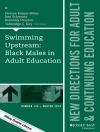This book explores the history of higher education in Thailand, and the ways in which excellence and equity have played out over time. Classed as a developing country, Thailand has implemented wide-reaching legislative and regulatory responses relating to the purpose, character of and access to higher education. The authors investigate these changes by interrogating the mechanisms and reciprocities that have operated at the international level to trigger this decision making, and acknowledge that these changes have often run up against long-standing cultural norms and ideologies. Thailand has a highly stratified society, and maintains a strong commitment to the preservation of Thai identity and traditional values: tensions and pressures are likely to arise when history, culture and ideology are not aligned with political decree. Importantly, the push and pull between equity and excellence within the education system are likely to lie at the heart of those tensions.
Table of Content
Chapter 1: Introduction.- Chapter 2: The early historical context of higher education in Thailand.- Chapter 3: The People’s Revolution (1932) and its effects.- Chapter 4: Higher education following the first two decades following World War.- Chapter 5: Unprecedented growth and the ‘October Movement’.- Chapter 6: Exigencies in higher education following a local and a global financial recession.- Chapter 7: Conclusion.
About the author
Penpisoot Kwan Maitrarat is Lecturer at Mahasarakham University, Thailand and has worked in education at Thai universities since 2009. Her specialist research areas are the history of education, Thai culture and society, and social studies.
Roger Openshaw holds a Personal Chair in History of Education from Massey University, New Zealand. Retired in July 2012 after nearly 40 years of service at Massey, he remains actively engaged in education history research.
Margaret Walshaw is Professor Emerita at Massey University, New Zealand. Her specific research interest is in developing theory to explain processes in education that might lead to a clearer understanding of effective and equitable practices.












